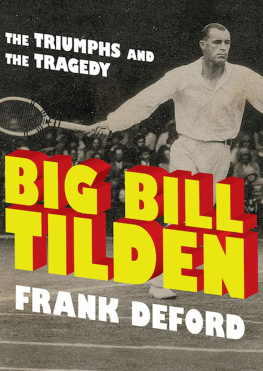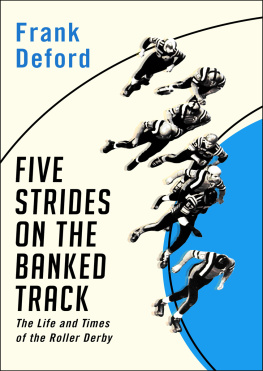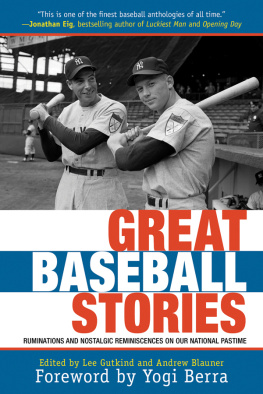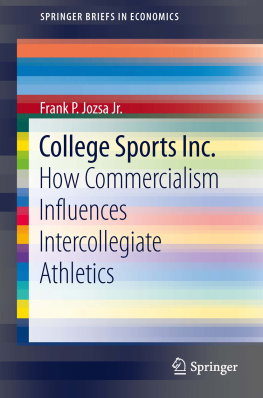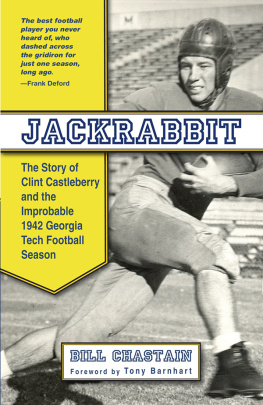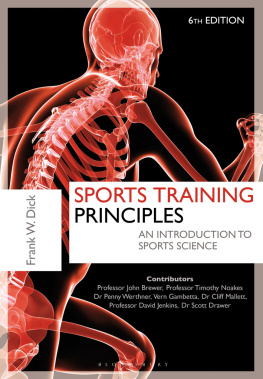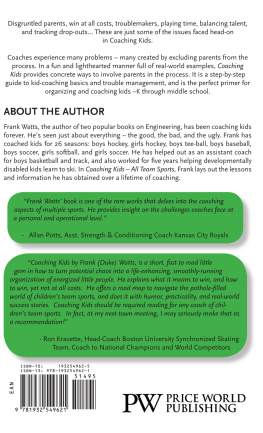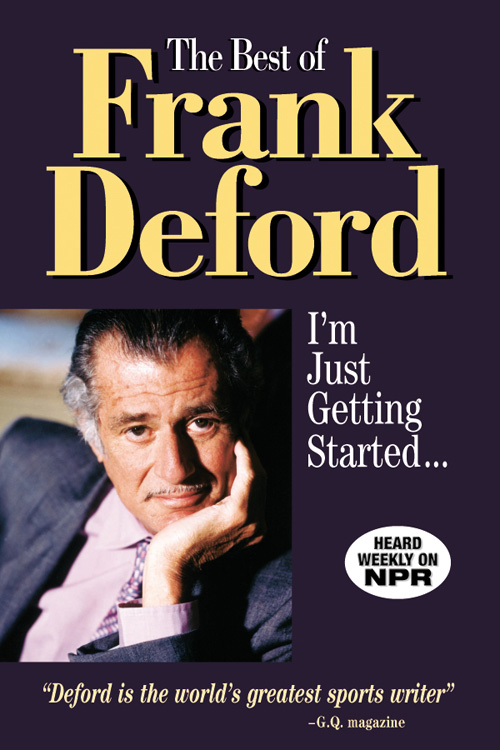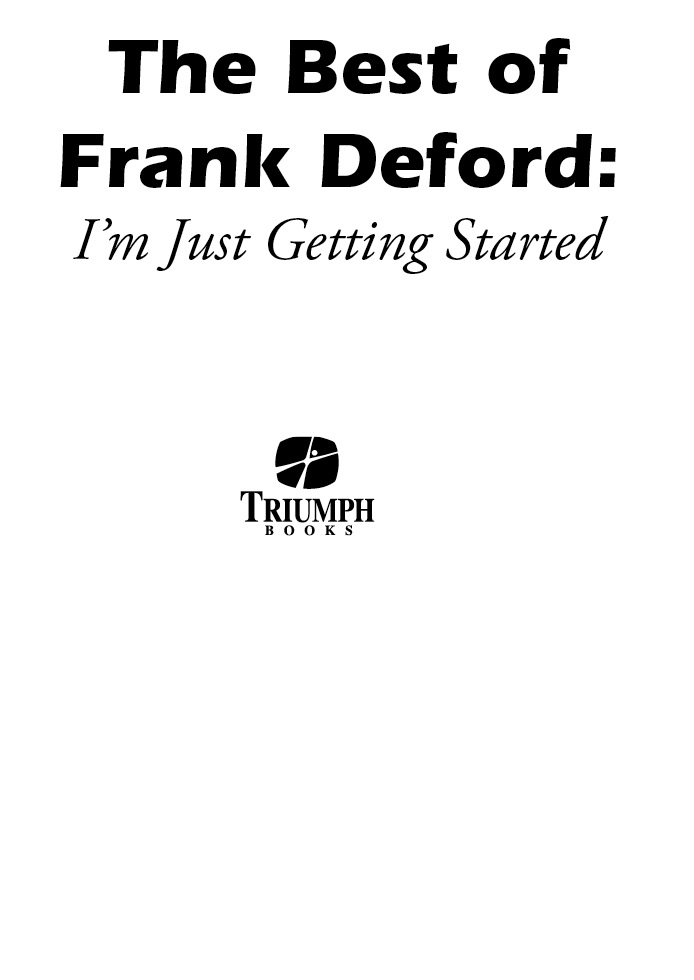
Other Books by Frank Deford
FICTION
Love and Infamy
Casey on the Loose
The Spy in the Deuce Court
Everybodys All-American
The Owner
Cut n Run
NONFICTION
The Worlds Tallest Midget
Alex: The Life of a Child
Big Bill Tilden
There She Is
Five Strides on the Banked Track
For Christian and Scarlet, who have endured, despite having a writer for a father
Contents
Commentaries
Commentaries
Commentaries
Commentaries
Commentaries
Commentaries
Commentaries
Commentaries
Introduction
I suppose that what sets this particular collection apart from other collectanea is that it is bimedia, and devotes about the same amount of space to selections of mine from magazine articles and radio commentaries. There is, however, a certain appropriateness to this mixture, because whereas most of us automatically lump the electronic mediaradio and TVtogether, I have found from experience that writing for radio is much more like writing for print than it is like writing for television.
In fact, while I started doing commentaries for National Public Radio in 1980and Im fast approaching my thousandtheven twenty years on, I still dont quite think of them as audio. Instead, to my mind, its just me reading what I have written, rather than letting someone else read it themselves. And I think that this is the best of radio, stillthe writing, incidentally read.
This is not to suggest, of course, that the voice doesnt matter. I have never forgotten what Howard Cosell told me once. Television, Howard said, was obviously the most powerful communications instrument ever invented, but radio offered, in its own one-dimensional way, an even greater potential concentration of authority. He expanded to explain: the person listening to someone on TV cannot help but be distracted some. Even if it is the President of the United States delivering a vital address, your eye may be drawn to the color of his tie. Is a hair out of place? No matter what, television is inescapably visual. Ah, but the radio message does not have to compete with the messenger. The voice alone can command us. In fact, most listeners just assume that everyone on the radio is of perfectly average dimension, one-size-fits-all. It shocks people who meet me to discover that my voice belongs to a body that is six-feet-four. You dont talk that tall, someone once told me.
Cosell, by the way, generously and specifically cited Paul Harvey as possessing the most masterful radio manner, although he subtly suggested that he, Cosell, might be the runner-upfair enough. Yet for however much we find ourselves in the thrall of a voice like Harveys, still, the radio voice is fleeting. If you write something for the printed page, it stares up at the reader, unforgiving, and especially if the words offend you, it sears. On the other hand, no matter how the radio voice may momentarily concentrate the mind, having spoke, it moves on. Im quite sure that I could say, Ive become a cannibal, and a listener would say to himself: Did he really just say hes become a cannibal?but by then Id be on to something or other about the NBA playoffs, and my cannibalism would quickly be forgotten. But, of course, we reread written words that matter to us on the printed page and let the smoke come out of our ears.
I find that people who write me letters about my articles address specific points. People who write me about my NPR commentaries deal with them collectively. Well, there is one notable exception. Should I err of pronunciation or grammar, I will hear about it. Oh boy, will I ever hear about it. NPR listeners have extraordinary powers of concentration when it comes to my mistakes. They are defenders of the faithof the English language. It is very humbling.
I am very fortunate, too, that Ive enjoyed the opportunity to speak about sports to such a broad and informed audience as the one that listens to me on Morning Edition. Sports is invariably segregated from everything else in the news. Its always been that way, going back to the sports pages that originated in the nineteenth century. Many countries even have whole daily newspapers devoted exclusively to sports, and sports is invariably a ghettoized segment of the local TV and radio news. (It has also somehow been decreed that sports and weather must be of absolute equal weight in our televised world.) Indeed, now that ESPN and other all-sports channels are becoming so popular, some local TV outlets are dropping the sports segment altogether from the news, further removing sports from the flow of the mainstream. Alas, even as much of a quality publication as is the Sports Illustrated for which Ive written for twenty-nine years, even as much as it celebrates fine writing, even as bright as are many of its readers, I know that that audience is limited, almost exclusively, to sports fans.
But the challenge of NPR is that I know a great many people are listening to me who dont otherwise know much about sports. Thats a bit frightening. I know, too, that many of these listeners are women, who are only lately come to sport. I have been advised, by a most distinguished female college president, that she listens to me naked, at her dawn toilette. The First Lady of the land, putative Yankee fan she, has informed me that she first stirs to the sound of my voice Wednesday mornings.
Oh, of course, I know that some listeners who dont care about sports take the opportunity to switch the dial or depart the room when the sports guy comes on. There remain out there plenty of the disciples of Menckenhe who once said: I hate sports as rabidly as a person who likes sports hates common sense. But I suspect that most of the faithful hold fast to NPR, staying there to suffer me and sports for three minutesperhaps even to learn a little something about a subject theyre not altogether familiar with. Thats not bad. Communications have become so fragmented nowadays; we settle so easily into our personal, safe little niches. C. P. Snows famous dissertation on the sad separation of our two intellectual cultures would now be something like a disassembling of twenty-two cultures (or two hundred and two cultures?). Ive often thought that newspapers ought to ape the NPR model and run a sports column once a weeknot in the sports section, but on the Op-Ed page (perhaps rotating it with a music column, a movie column, a business column, and so forth). That way we each might be more inclined to try reading about subjects outside our comfortable little spheres of interest.
Writing for radio does require some accommodationinflection, animation. It is not simply words on paper put to tongue (and accordingly I have occasionally made some slight changes in printing my commentaries here, where I have thought that what I originally wrote best for the ear didnt necessarily also best serve the eye). I am lucky, though, in that one of my assets as a writer is that, whereas I am tone deaf and cant carry a tune, I have always had a good ear for literary pace and rhythm. Years ago, one of the disc jockeys who so generously donates his time to read Sports Illustrated to the blind told me that my stories read better than the magazines other writers. (Understand, they werent necessarily better stories; they just were better for the telling.) So, I was fortunate in that I had some natural facility when I stumbled into radio.
Growing up, I was, in fact, in that vanguard of print journalists who were quite at home with radio and TV. Of course, some newspaper writersWalter Cronkite and David Brinkley, most famously; Jim McKay and Brent Musberger, in sportsmade the full switch to the air. But I believe that mine was the first generation of writers to dabble in broadcast, keeping a foot in both camps. Especially in sports, when I first broke in in the 60s, the newspaper veterans tended to look down on broadcastersif not, in fact, despise them.


